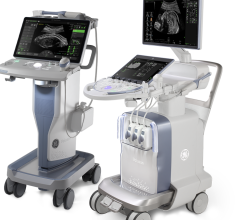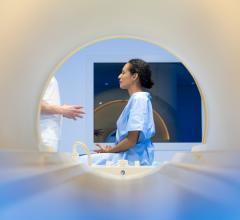
November 16, 2011 — The American Society of Echocardiography (ASE) issued a response voicing concerns over the implications of a study published this week in the Journal of the American Medical Association (JAMA). The study, entitled "Association Between Physician Billing and Cardiac Stress Testing Patterns Following Coronary Revascularization," suggests financial reimbursement and imaging equipment ownership may influence utilization of cardiac stress tests.
"We recognize that, in light of escalating healthcare costs, the study of the utilization of our healthcare resources, including cardiac ultrasound, is valuable. It is important to recognize that the timeframe involved in this study predates publication of the ACCF/ASE/AHA/ASNC/HFSA/HRS/SCAI/SCCM/SCCT/SCMR 2011 Appropriateness Use Criteria for Echocardiography (AUC), which were published in March 2011. We believe that the Appropriate Use Criteria have influenced physician ordering patterns," said ASE President James D. Thomas, M.D., FASE. "If the research were done today, we believe that the results would be different."
A video on the JAMA Website that accompanies the article acknowledges that Appropriate Use Criteria (AUC) were not in place when the data was collected; it also notes the importance of follow-up studies to assess the impact of AUC.
ASE cautions against the use of this study to influence placing limitations on any practice setting, as it has several notable weaknesses. First, taken as a whole, the study notes that only 2.5 percent of the claims for stress echocardiograms performed did not include a symptom justifying the study; according to ASE, the inaccurate nature of coding data could well have resulted in overestimation of asymptomatic patients.
Secondly, the lack of clinical data makes extrapolating this to a larger subset difficult. This study is based on data collected in a private practice setting, which was far more prevalent at the time the research was conducted. A recent survey of ASE members demonstrates that only 26.5 percent of members still practice in these settings. Thus, the results of the current study are unlikely to reflect current practice patterns and therefore should not be generalized.
An editorial by Hollenbeck and Nallamothus in the same issue of JAMA, points out that although imaging utilization among cardiovascular specialists has increased over the last two decades, "at the same time, there have been substantial declines in mortality related to coronary disease, and thus it is uncertain whether the observed increase in imaging utilization is entirely a bad thing."
ASE strongly encourages physicians to refer to the AUC, the American Society of Echocardiography Recommendations for Performance, Interpretation and Application of Stress Echocardiography, and other guidelines prior to ordering stress echocardiography. The society has collaborated with the American College of Cardiology (ACC) on a Web-based ordering tool, called FOCUS, which is intended to help a physician decide whether a test is appropriate according to the AUC.
As a founding member of the Intersocietal Commission for the Accreditation of Echocardiography Laboratories (ICAEL), ASE recognizes and supports the role of lab accreditation in ensuring adherence to the AUC; this results in fewer inappropriate studies and improved quality, thus reducing the need for repeat studies.
ASE has published numerous guidelines promoting best practices for cardiovascular ultrasound usage and providing members with educational products such as apps and pocket guides to increase compliance. The society is also conducting outreach to try to influence practice through these methods.
Finally, ASE is working to find an effective reimbursement paradigm; the ideal solution balances quality and appropriateness with patient comfort and user-friendliness, and supports having cardiac ultrasound studies performed and interpreted by qualified cardiologists/echocardiographers dedicated to optimal patient care.
The society encourages insurers and the Centers for Medicare and Medicaid Services (CMS) to partner with professional societies incorporating AUC and decision tools such as FOCUS into daily clinical practice.
For more information: www.asecho.org


 March 19, 2025
March 19, 2025 








